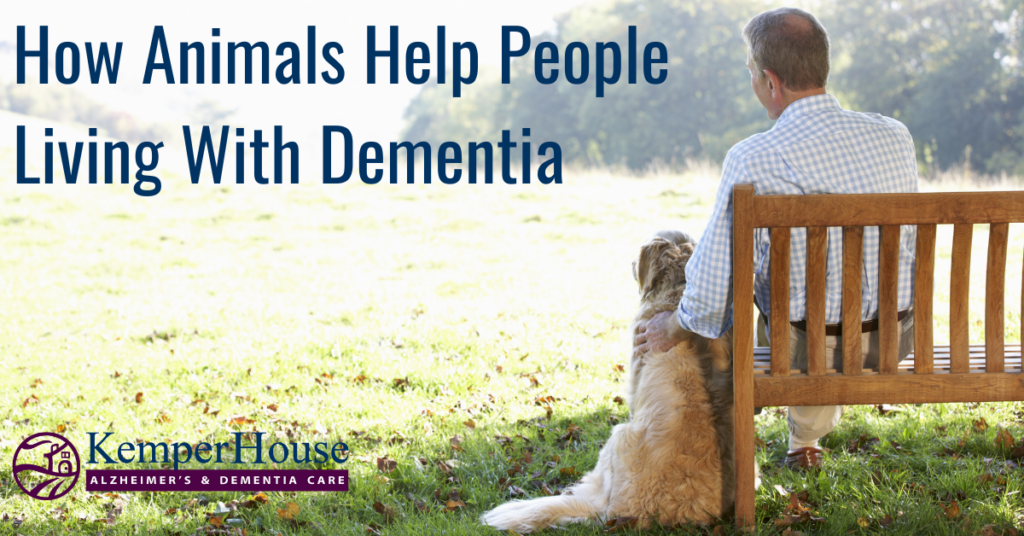
How Animals Help People Living with Dementia
How Animals Help People Living with Dementia
The DOG days of summer are here! If you think the best rewards of having a pet are happy tail wags and couch cuddles, think again. While companionship is the most obvious benefit of having a pet, in the older population, pets add a sense of purpose, provide stress relief, and help owners cope with the physical and emotional symptoms of aging.
As most pet owners will agree, just being around animals can immediately brighten a gloomy day. Researchers have long suggested that pets are good for us. Just a few minutes with a pet can produce health benefits such as lower blood pressure, lower heart rate, improved mood, and a reduction in the stress hormone cortisol. Pets also increase opportunities for exercise and socialization. Cats, dogs, birds, and other pets have become increasingly common in the treatment of individuals with dementia.
Animals can make the perfect therapists and companions for individuals with dementia. They can provide a tremendous source of social support and unconditional love. Research shows that people with dementia recognize a pet in the environment as friendly and non-threatening. Just by their presence, dogs have proven to reduce agitation and increase pleasure. It’s amazing how a cat on the lap or a friendly dog can evoke such a positive response.
Studies show that when individuals with dementia are around pets, they are more likely to display interactive behaviors. Animals also can increase the amount of physical activity a resident participates in. Depending on the mobility of the resident, they may be able to engage in playful activities with the dog, such as taking him on a short walk outside.
It has even been shown that dementia patients eat more following the visit of a therapy animal. Many individuals with Alzheimer’s, who respond to little or nothing else in their environment, will respond to the non-threatening presence of a gentle therapy animal. An animal also provides a natural and easy conversation topic for individuals with dementia, who often feel a great deal of strain from being put into social situations.
Kemper House frequently has therapy dogs and other pets visit our homes to interact with our residents. We do require all visiting pets and therapy animals have documentation of their annual health examination and shots as it is a regulation under our licensure. Records of these exams and vaccinations are kept on file. This helps minimize the risk for people who may have pet allergies or simply don’t care to interact with the animals.
For people who enjoy animals, pet therapy offers many benefits: better health, a more relaxed mood, improved communication, and a chance to socialize and interact with others. For our residents here at Kemper House, the animals bring so much joy and happiness, it is heart-warming to see. Dr. Edward Creagan of the Mayo Clinic Medical School observed, “If pet ownership was a medication, it would be patented tomorrow.”
If you are interested in bringing your pet to Kemper House for a visit, please contact the Life Enrichment Director at Kemper House. If you do bring your pet to Kemper House, please check in with the Front Desk so that we can be sure that we have the most updated veterinary information on file.
Sources:


